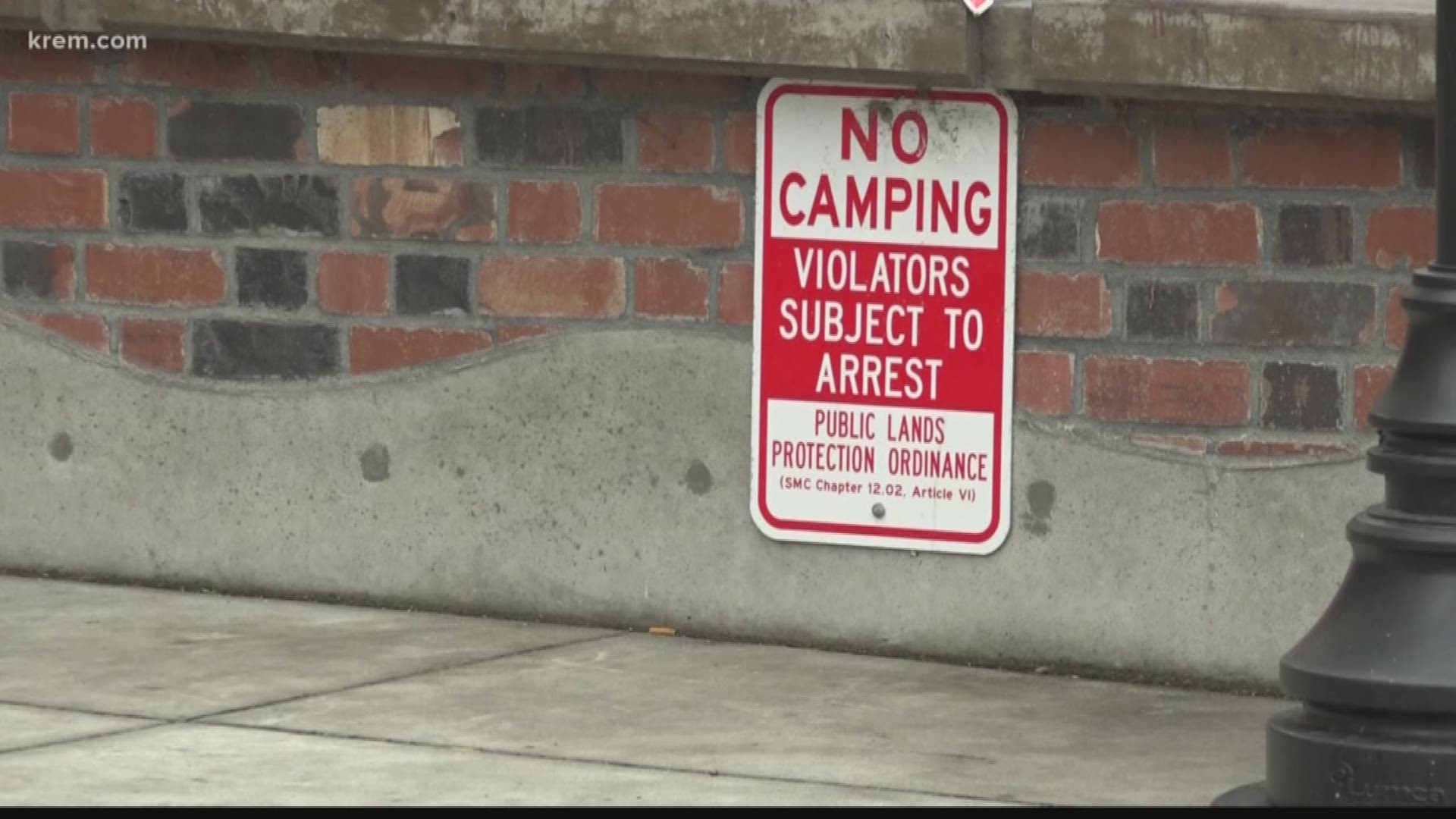SPOKANE, Wash. — Last winter, Spokane city council temporarily suspended its "sit and lie" ordinance. But it is still enforced today.
The "sit and lie" ordinance makes it illegal to sit or lie in doorways or the public right of way between the hours of 6 a.m. and midnight. But the law can only be enforced when there is shelter space available.
On top of that, the law only applies to areas within certain boundaries of the downtown Spokane core.
City hall is located outside of the boundary, which means the ordinance does not apply there.
However, you will still be cited, according to a different city code, for camping outside city hall. That's because it's considered public land.
Those who are cited for camping on public lands or for violating the "sit and lie" law are referred to community court.
City spokesperson Marlene Feist said community court is designed to connect people to needed services, not a punishment.
She adds the "sit and lie' ordinance serves as an additional tool to help the city find a balance between the needs of citizens and those who work and shop in the city.
As for available shelter space, this year the city opened a warming center on South Cannon. Jewels Helping Hands operates the center with about 80 available beds.
And while the city does not have a year-to-year comparison of available beds, Feist said there has been available shelter space this year. Which means, sit and lie is being enforced.
Camp Hope, a year later
About this time last year, protesters put up tents outside Spokane City hall. They referred to themselves as "Camp Hope."
Protesters wanted the city to add more shelter space, and repeal its "sit and lie" ordinance.
The city eventually asked them to clean up and move on.
Today, Camp Hope protesters say there is still work to be done.
Joseph Sampson stood outside city hall at very the beginning, where Camp Hope came to be.
He acknowledges the city's work to open a warming center and contract more shelter space. But he believes that's still not enough.
"Even though Cannon is open, I still see people sleeping under the bridges in doorways and things like that," Sampson said. "That kind of tells me we need more beds."
City Spokesperson Marlene Feist said the city does not have a year-to-year comparison of the available beds. But she said there have been spaces available across the shelter system nightly.
Barb Brock is also an involved member of Camp Hope. She said the group is still hard at work.
"I see a lot of individuals involved in Camp Hope continue to stay involved and continue to work for better resources or more opportunities for (those experiencing homelessness)," Brock said.
Camp Hope group members stay connected on its Facebook page.
In addition to this, Brock and Sampson say they continue to bring their message forward by attending city and neighborhood council meetings regularly.
But now, with a new mayor and city council president, Simpson says it is hard to tell what the future holds for their efforts.

